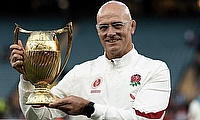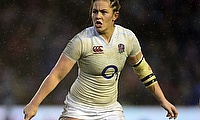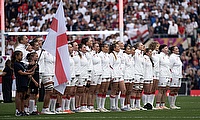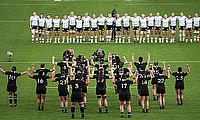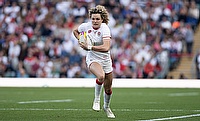England Women Poised for Pro Era
England's women rugby stars will be handed the chance to turn professional for the first time next month, the Rugby Football Union has announced.
The RFU will issue 20 central contracts to form a fully professional England Women's Sevens squad for the forthcoming season, building up to the short-format discipline's debut Olympic inclusion at Rio 2016.
England's amateurs won the Women's Rugby World Cup for the second time earlier this month, beating Canada 21-9 in Paris, leading to calls for the RFU to set up a professional arm.
Now 12 of that squad will be among the 20 receiving full-time funding for the first time.
England's World Cup-winning captain Katy Mclean will accept a central contract, giving up her job as a teacher.
"This is fantastic news for the sport and exactly what we need as an England squad to continue to be at the top of our sport on a global scale," said Mclean.
"I am extremely excited about this new challenge and where this full time programme can take us as an England team."
The RFU will award one-year contracts, with the Sevens stars expected to play international XVs and Premiership club rugby.
Blindside flanker Marlie Packer has been handed a full-time role, and is likely to give up her job as a plumber in south London.
Playmaker and goal-kicker Emily Scarratt is another who will forego teaching to join England's women's professional ranks.
England's 20 centrally contracted stars will train five days a week during the season, excluding tournament commitments, based at Twickenham Stadium and Guildford's Surrey Sports Park.
The RFU's head of women's performance Nicola Ponsford and England Women's Sevens head coach Simon Middleton will lead the new programme.
"We are delighted to be able to offer a full time Sevens programme for next season," said Ponsford.
"We are really excited by the opportunity and feel that this will enable us to compete on a global level.
"The inclusion of Sevens in the Olympics has meant that a significant number of sides we are competing against have been full-time for a year or more.
"We have been planning to do this for some time but we needed to make sure that we could focus on the XVs Rugby World Cup whilst also ensuring we had the building blocks in place to guarantee that a full-time programme is effective. With two years to go until the 2016 Olympics Games we felt this was the right time to move forward."

